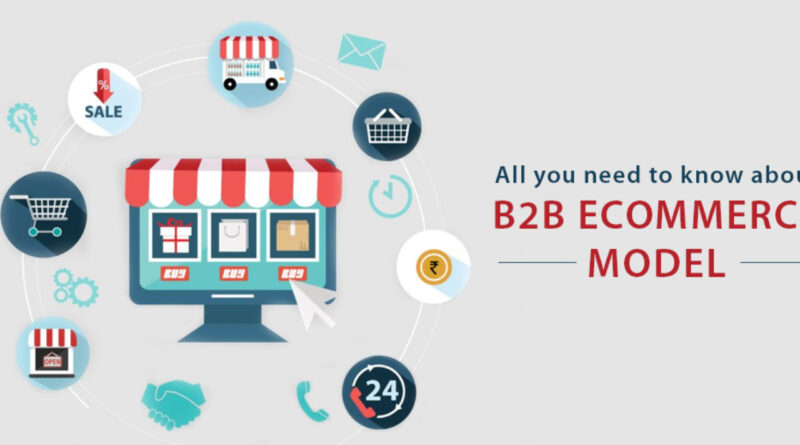Here Are The Pros and Cons of Buying an Ecommerce Business Online
The eCommerce business is witnessing a boom like never before. And all studies indicate that this trend will continue over the foreseeable future, and beyond. Naturally, this positive growth curve has been attracting buyers and convincing owners to sell their enterprises for profits. There is no dearth of eCommerce businesses for sale if you are considering acquiring one. However, before you make your decision you should know the pros and cons involved. Let us take a look at some of the prominent ones.
Pros of Buying an Ecommerce Business
Here are some of the key aspects that make an eCommerce business for sale an exciting prospect for buyers.
- Fewer Startup Hassles – Imagine the amount of time and effort that it takes to start a business from scratch. The anxiety and stress involved are imaginable. Even after putting in all the labor, there is no surety of success and many businesses fail in the first 1-3 years. By taking over an established eCommerce business for sale you skip all these arduous steps and directly reap the benefits.
- Lower OpEx – Setting up a business involves several costs. These range from building a technical platform, sourcing products, establishing a supply chain network, conducting market research, advertising, etc. These are essential to setting up a business and helping it stand apart from the competition. An already successful eCommerce business for sale would have already invested in these activities, thereby reducing your expenses in carrying them out.
- Quick ROI – With low effort and low operating expenses, you can directly get to earning the returns the business has been generating. The customer base is already there and so is the infrastructure. As far as you’re concerned, it can be business as usual with existing sales channels, campaigns, and models.
Cons of Buying an Ecommerce Business
Every coin has two sides. Here are some of the challenges that you may experience while taking over an eCommerce business for sale.
- Upfront Investment (CapEx) – While you may save on the costs of operational setup, you will need to pay a large sum for buying a business. The actual amount will depend on the valuation of the eCommerce business for sale and the subsequent negotiations. The valuation depends on various factors such as the business’s current cash inflow, profitability, the number of years of existence, brand value, potential future growth, etc. So, you need to assess your finances prudently to ensure you have or can raise the capital needed to buy the eCommerce business for sale.
- Competition – With rampant growth comes stiff competition. The eCommerce space is a highly competitive one which is one of the factors that can deter buyers. While the revenue could be high, the margins may be low. Not to mention the high cost of returns and exchanges. Before you decide to go ahead with the process, conduct due diligence to understand the competitive landscape of the business you’re getting in and the specific nuances.
- Lack of Understanding of the Business Model – Going into acquiring an eCommerce business for sale without thoroughly understanding the business model can be quite detrimental. Although there are several advantages of buying a business online, you will need to eventually take the helm of the ship. To run your enterprise successfully, you need to know intricately the workings of each aspect of the business. Try to identify businesses that are easy to replicate and have clearly documented procedures and processes.
Now that you know the key benefits and challenges involved, here are some of the common eCommerce business for sale that you can consider buying.
- Dropshipping – In dropshipping you don’t need to maintain any inventory or bear the costs of shipping. You simply procure products from third-party suppliers and other vendors, list them on your website, and upon the order being placed, the supplier directly ships the product to the customer.
- Affiliate Marketing – Affiliate marketing is a low-cost business that involves promoting products and services by other manufacturers and providers on your platform. Whenever someone clicks on the link for an affiliate and completes the purchase, you get a sales commission in return. It can be quite competitive as we
- Retail Arbitrage – Retail arbitrage allows you to get a foot in the eCommerce industry by buying products from brick-and-mortar stores and then selling them on your platform at a margin. This can be a bit cumbersome though and there is always a price war with online retailers.
- Private Label – In this business model, you source products from one or multiple vendors, label (or brand) them as your own and sell directly through your own platform.
- B2B Selling – In B2B, you sell directly to other businesses. It is also known as wholesale eCommerce. This requires a deep understanding of the market, a wide professional network, and relationships to sell your products or services.
Weighing the pros and cons before making a financial decision is crucial to safeguard your investment. Buying a business is as big a decision as any. Having done your due diligence and evaluated your financial capability, you can visit online platforms and marketplaces that list/sell eCommerce business or contact a broker to connect you with sellers.




